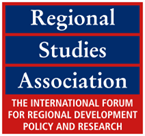 |
Regional Responses and Global Shifts: Actors, Institutions and Organisations
Pécs, Hungary
Monday 24th – Wednesday 26th May 2010
|
In the decision-making process, both the international acknowledgement of the Centre for Regional Studies and the fact that Pécs received the prestigious title of the „European Capital of Culture” for 2010 both played an important role. Due to the high level of regional science, the name of Pécs has become associated with the notion of regionalism and decentralisation in Hungary and abroad as well. The fact that Pécs hosts the conference can be regarded as a symbolic gesture, strengthening the competitiveness of the city, the South Transdanubian region and domestic regional science as well.
The conference with the title ’Regional Responses to Global Shifts’ discusses the appropriate instruments, institutions and organisational principles neccessary to overcome the international crisis in the regions and the possible directions of settlement system development. Reforms need to be implemented in European cohesion policy. This was discussed in the presentation of Dirk Ahner,Director General for Regional Policy of theEuropean Commission.
In his opening speech, the president of Hungarian Regional Science Association and Head of the HAS Centre for Regional Studies, Gyula Horváth emphasised the fact that regional science offers solutions for the future strategies of European development in almost all countries of the continent (see attachment below). There are regions in Eastern Europe as well (e.g. the Western region with the centre Timisoara in Rumania, Vojvodina in Serbia and the Southern Morava Region with the centre Brno in the Czech Republic) whose successful development is linked to the implementation of a new development paradigm.
The conference is the biggest event in the 25-year history of the
Regional Studies Association. The nearly 600 participants represent 50 countries of the world. A large number of regional science researchers from Eastern and Southeastern Europe were also present. 20 Russian scientists gave a presentation at the conference.
The results of the conference will influence the new directions of cohesion policy in the next programming period of the EU starting in 2014. The Hungarian government can also profit from the experiences of the conference, since the new long-term European regional cohesion policy has to be accepted during the Hungarian presidency in 2011.